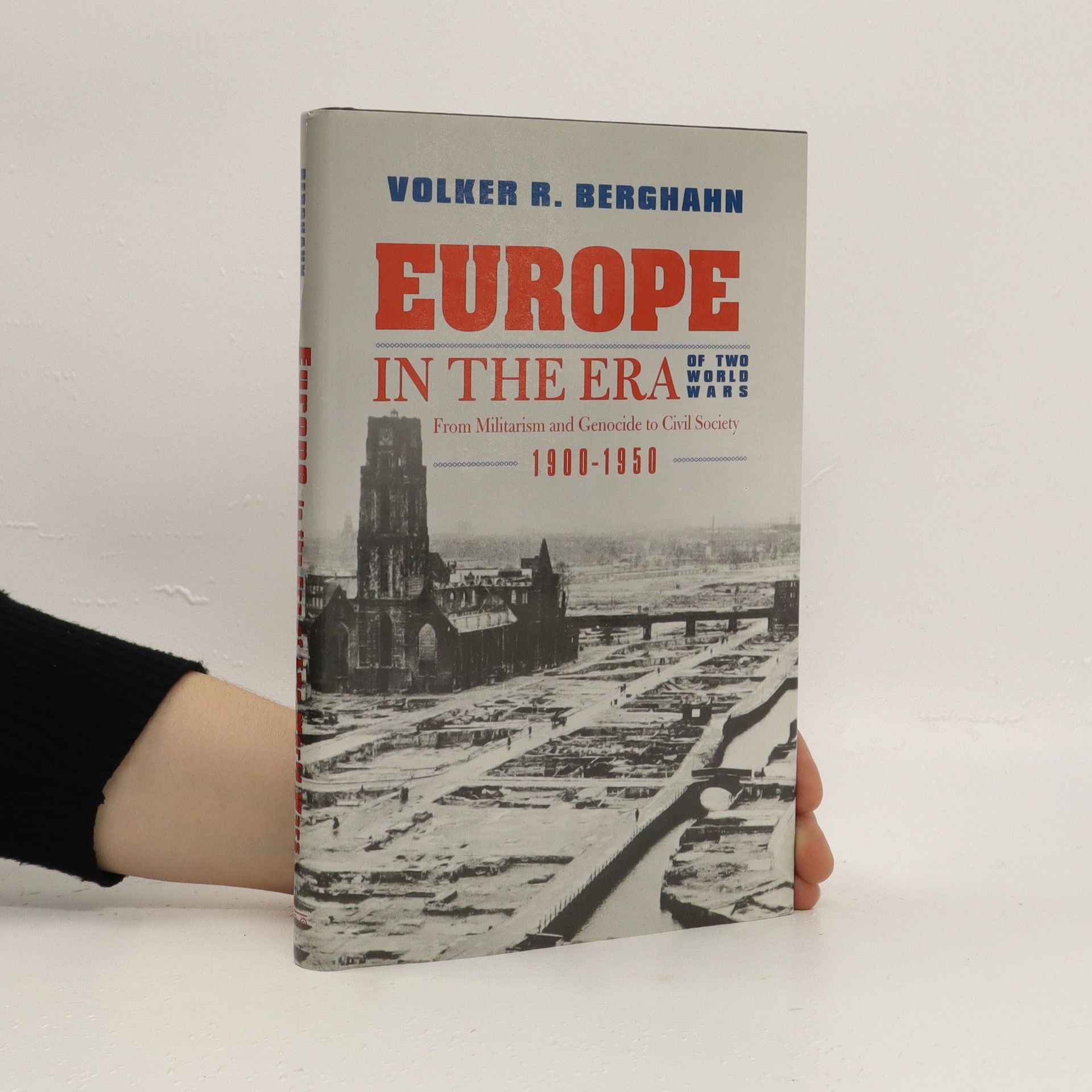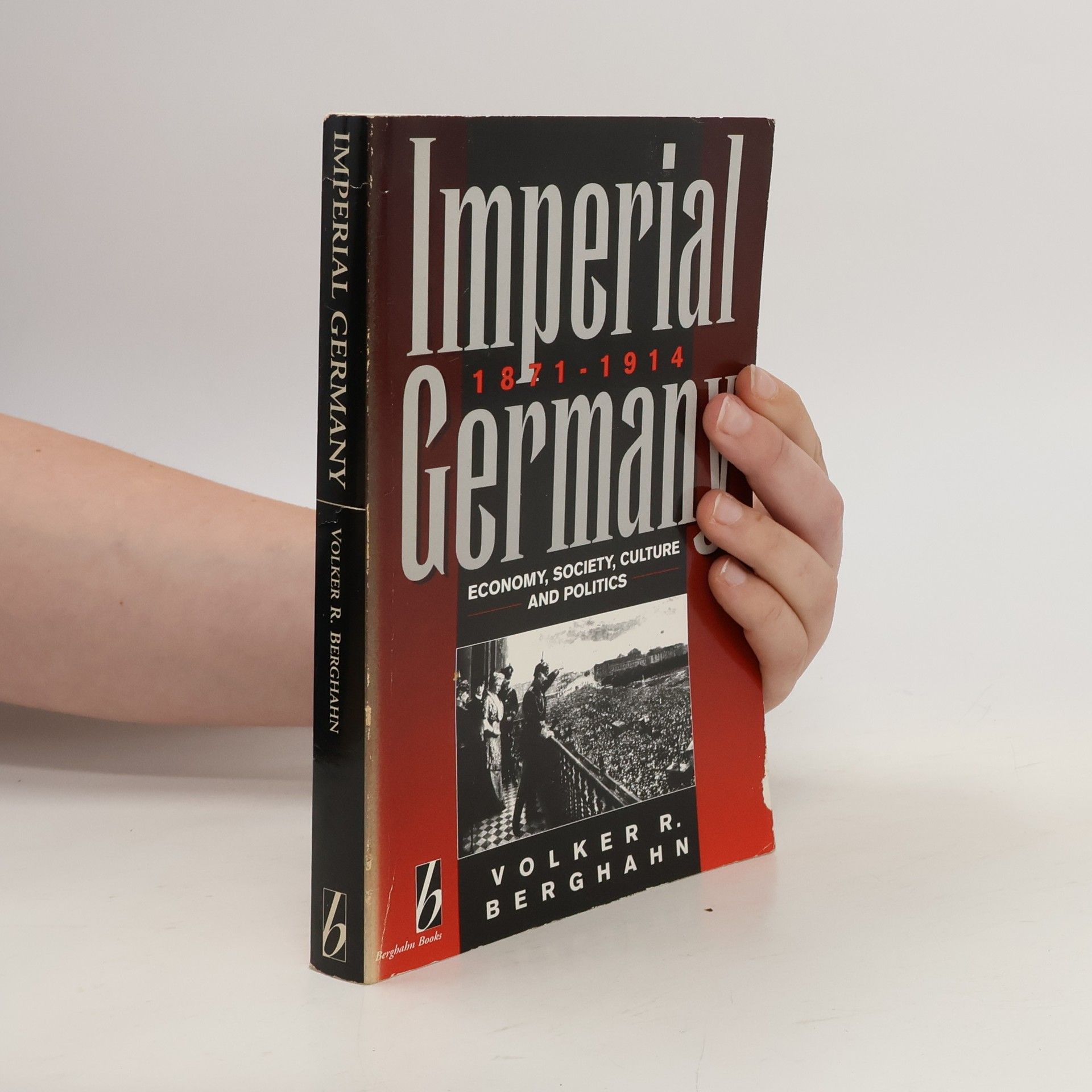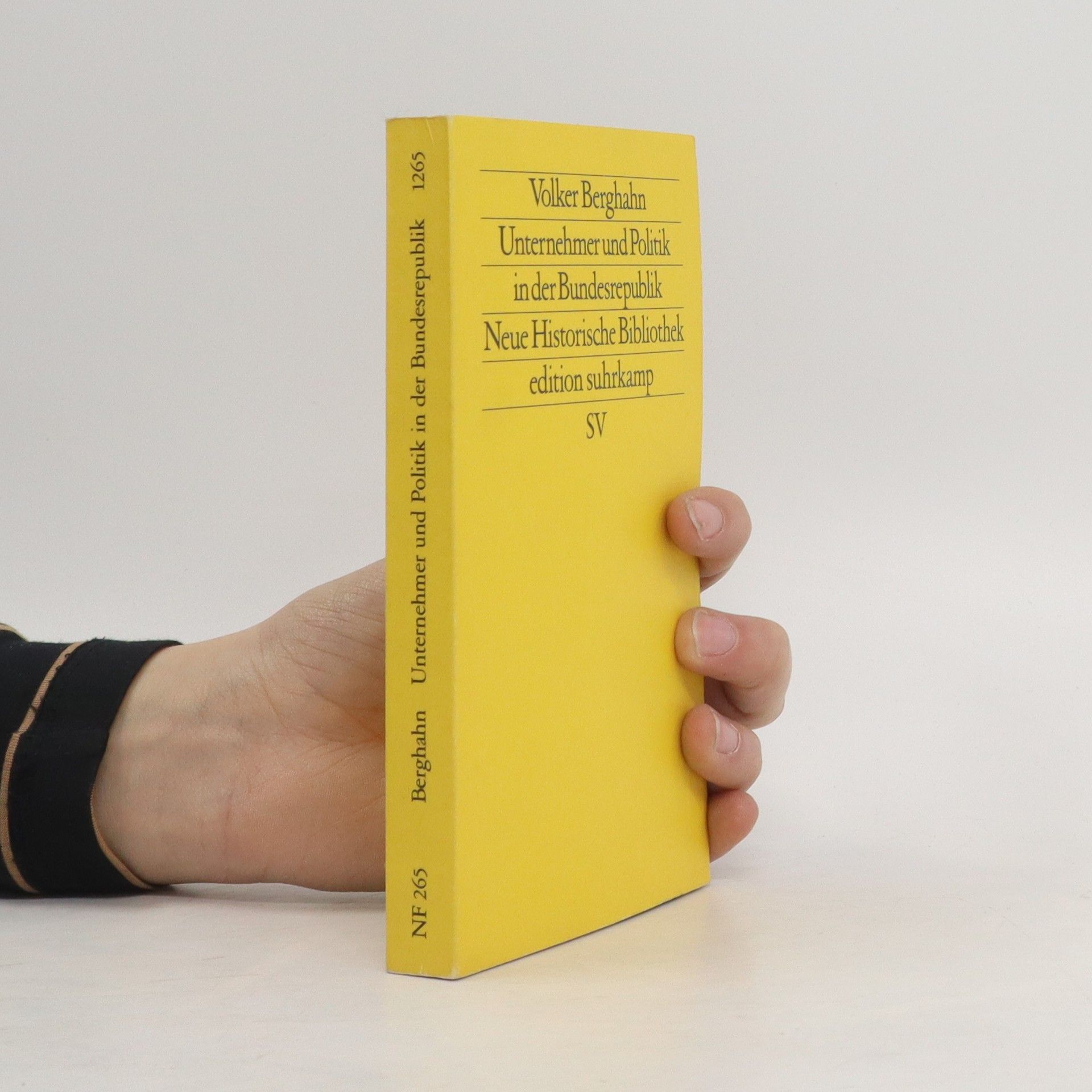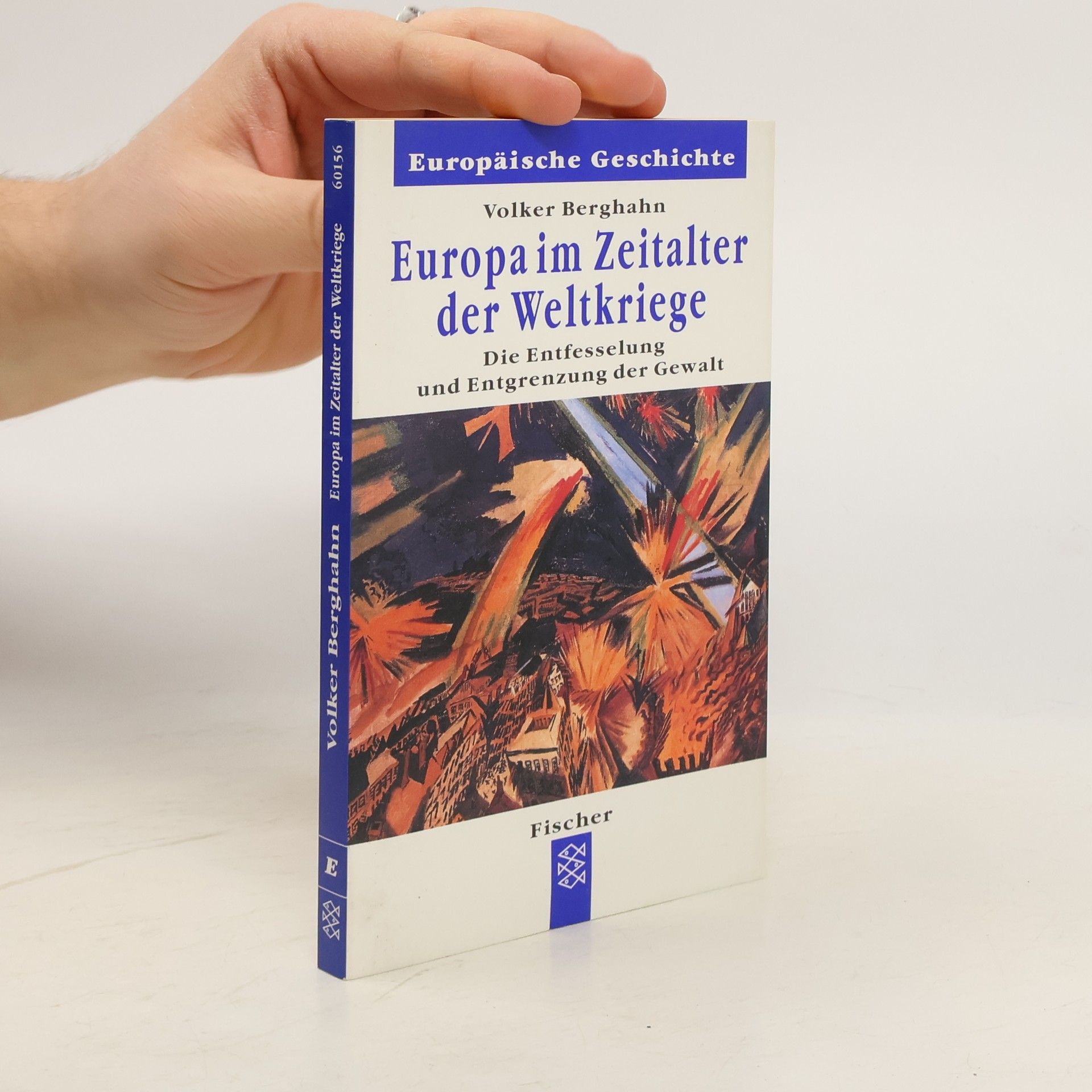A comprehensive history of German society in this period, providing a broad survey of its development. The volume is thematically organized and designed to give easy access to the major topics and issues of the Bismarkian and Wilhelmine eras. The statistical appendix contains a wide range of social, economic and political data. Written with the English-speaking student in mind, this book is likely to become a widely used text for this period, incorporating as it does twenty years of further research on the German Empire since the appearance of Hans-Ulrich Wehler's classic work.
Volker R. Volker Rolf Berghahn Boeken






Europe in the era of two World Wars : from militarism to civil society, 1900-1950
- 163bladzijden
- 6 uur lezen
This excellent book about Europe in the era of the world wars has many virtues. The questions that drive it are, indeed, the central ones for twentieth-century European history. Among the many books on this subject that have appeared around the millennium, I know of no other that conveys the key problems so well and so concisely."--Eric Weitz, University of Minnesota, author of "A Century of Genocide: Utopias of Race and Nation"
Journalists between Hitler and Adenauer
- 288bladzijden
- 11 uur lezen
Am 28. Juni 1914 werden der österreichische Thronfolger Franz Ferdinand und seine Frau in Sarajewo ermordet. Im Mittelpunkt des Buches steht der darauf folgende Zusammenbruch der Großmachtbalance des 19. Jahrhunderts, der Beginn und Verlauf des Ersten Weltkriegs, die internationale Neuordnung und die Entwicklung der neuen Mächtekonstellation. Das Buch ist Teil der Reihe „20 Tage im 20. Jahrhundert“, mit der anhand 20 ausgewählter Tage die Geschichte des letzten Jahrhunderts dargestellt wird. Die 20 Tagesereignisse sind Ausgangspunkt für eine umfassende Darstellung der internationalen, gesellschaftlichen, wirtschaftlichen und kulturellen Entwicklung des letzten Jahrhunderts des zweiten Jahrtausends. Das Ergebnis: eine Bilanz des 20. Jahrhunderts.
Der Erste Weltkrieg
- 120bladzijden
- 5 uur lezen
Knapp und anschaulich stellt dieser Band die Geschichte des Ersten Weltkriegs dar. Volker Berghahn erläutert darin nicht nur die Militär- und Politikgeschichte des Krieges, sondern auch die Sozial- und Alltagsgeschichte an Front und Heimatfront. Ein Vorwort zur Neuauflage behandelt zunächst die neuesten Forschungen. Nach einer Erläuterung der Ursprünge des Krieges und der Julikrise von 1914 folgt dann eine Analyse des Krieges aus der Perspektive der politischen, militärischen und wirtschaftlichen Eliten, bevor in einem weiteren Kapitel von «unten» die Erfahrungen von Millionen von Soldaten an allen Fronten sowie der in der Heimat zurückgebliebenen Frauen und Kinder geschildert werden. Das Buch endet mit einer Darstellung des Zusammenbruchs erst des russischen Zarenreichs 1917 und der beiden mitteleuropäischen Monarchien ein Jahr später.
Englands Brexit und Abschied von der Welt
Zu den Ursachen des Niedergangs der britischen Weltmacht im 20. und 21. Jahrhundert
- 280bladzijden
- 10 uur lezen
Als sich 2016 die knappe Mehrheit der Briten in einem Volksentscheid fÜr den Austritt aus der EU entschied, schÜttelten nicht nur die BÜrger der europäischen Nachbarländer den Kopf. Warum glaubte eine Nation im Zeitalter der internationalen Verflechtungen ihrer Wirtschaft und Politik, im Alleingang durch Erlangung nationaler Souveränität einen erneuten Aufstieg in den Kreis der Großmächte erreichen zu können? Volker Berghahn stellt den Brexit in eine langfristige historische Entwicklung, ohne die die Traditionen und Emotionen, die in der heftig gefÜhrten Debatte der letzten vier Jahren an die Oberfläche kamen, nicht zu verstehen sind. Er zeigt, dass die Wurzeln des Brexit in den beiden von Deutschland ausgelösten Weltkriegen und des dadurch verursachten wirtschaftlichen und politischen Niedergangs Großbritanniens im 20. Jahrhundert liegen.
Europa im Zeitalter der Weltkriege
Die Entfesselung und Entgrenzung der Gewalt
- 204bladzijden
- 8 uur lezen
Eine der schwierigsten ragen, die die Geschichts- und Sozialwissenschaften beschäftigt, ist die, wie es in der ersten Hälfte des 20. Jahrhunderts zu einer bisher unvorstellbaren Eskalation der Gewalt hatte kommen können, die mehr als 70 Millionen Menschen das Leben kostete. Diese rage steht im Mittelpunkt des Bandes. Beginnend mit den Debatten um die Zukunft der Kriegsführung vor dem 1. Weltkrieg, analysiert Volker Berghahn die Kriegswirklichkeit von 1914 bis 1918 sowohl im Westen als auch im Osten. Es war ein totaler Krieg zwischen Industrienationen, der sich nach 1918 als Bürgerkrieg fortsetzte. Aus der z. T. pathologischen Verarbeitung dieser Gewalterfahrungen entstehen in den 30er Jahren Feindbilder und Visionen, die die Achsenmächte später in die Tat umgesetzt haben. Deren Utopie einer europäischen Neuordnung stieß mit jener Vision einer zukünftigen Gesellschaft zusammen, die am klarsten von den Amerikanern vertreten wurde. Das Jahr 1942 stellt in diesem Ringen den Höhepunkt und zugleich den Wendepunkt dar. Entsprechend geht es im letzten Teil des Buches nicht nur um die Schilderung der Zerstörung jener auf militärischer Gewalt gebauten faschistischen Utopie, sondern auch (zumindest im Westen)um die Durchsetzung einer diametral dazu auf Konsum hinorientierten Zivilgesellschaft.


